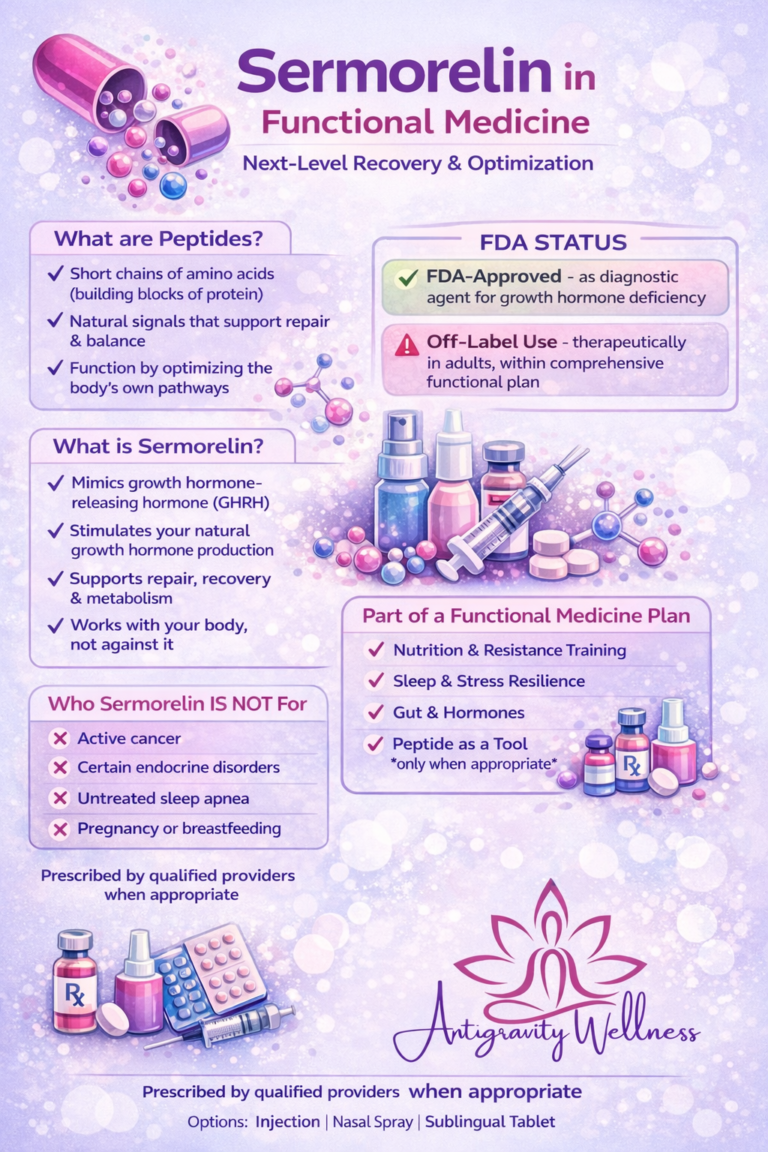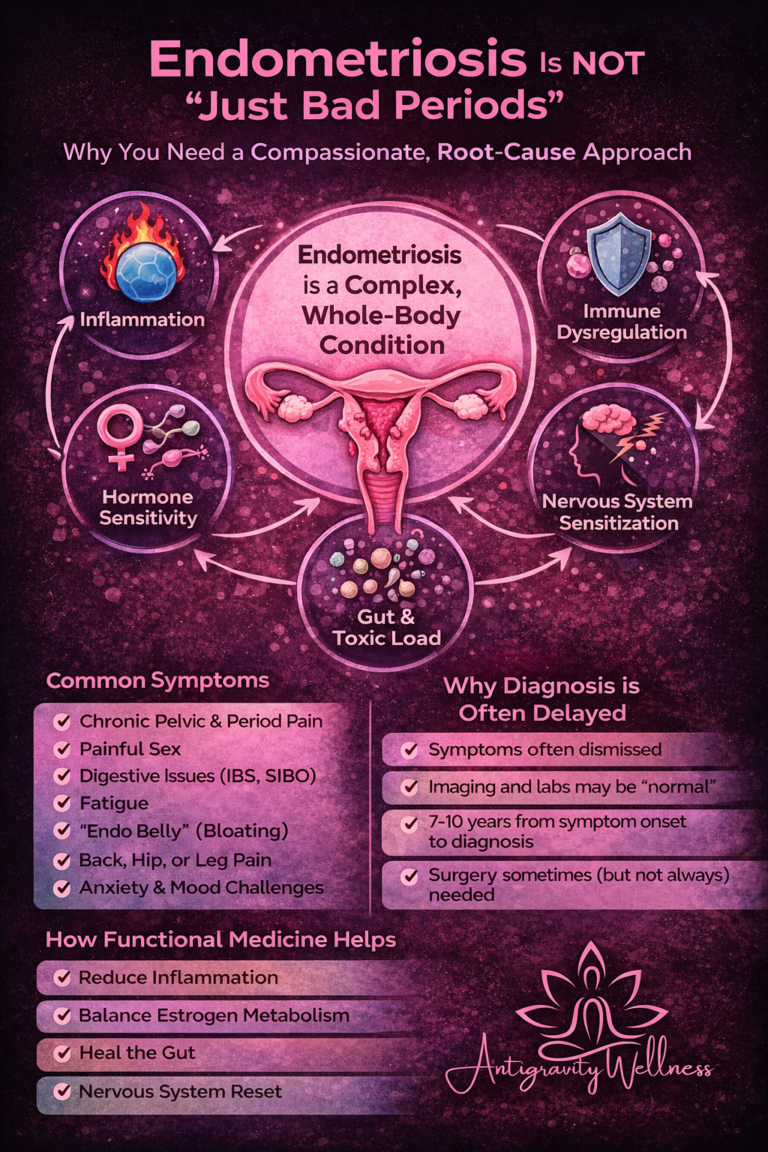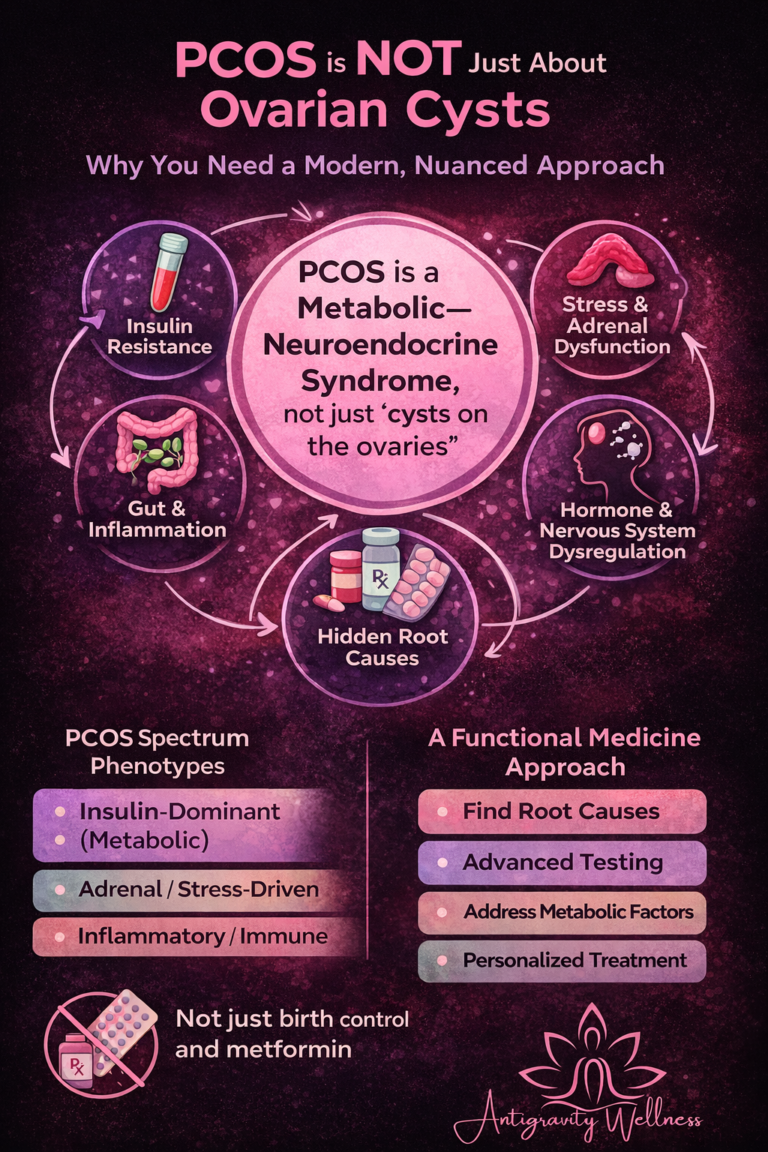
When Stress Takes the Lead
Maria is 45. She’s a mom, a full-time project manager, and the glue that holds her family together. But lately, the cracks are showing. She wakes up already exhausted, her heart races at random times, and she’s been more forgetful than usual. Her clothes feel tighter, she’s constantly snapping at her partner and kids, and she’s starting to feel hopeless. What Maria doesn’t realize is that her unmanaged stress is compounding—and it’s affecting everything: her hormones, her health, her relationships.
She tells herself she doesn’t have time to meditate or go on long walks. But the truth? She doesn’t have time not to.
The Brain–Body–Hormone Connection
Stress isn’t just a mental state. It’s a full-body experience that activates your HPA (hypothalamic-pituitary-adrenal) axis, increasing cortisol—the primary stress hormone. In small amounts, cortisol is helpful. But in chronic doses, it’s a hormone-wrecking bulldozer.
High cortisol:
- Disrupts your blood sugar and insulin balance
- Worsens hot flashes and night sweats
- Increases anxiety and mood swings
- Affects thyroid and sex hormone production
- Encourages belly fat storage
- Depletes energy and motivation
And when you’re also in perimenopause, the body’s hormonal resilience is already compromised. Your estrogen and progesterone levels are fluctuating—and stress can magnify this rollercoaster, making you feel completely ungrounded.
How Lifestyle Stressors Contribute to the Cycle
The modern “wellness hustle” can sometimes make things worse. Maria thought she was doing the right thing by working out six days a week and eating “clean” (which for her meant skipping meals, cutting carbs, and avoiding fat). But here’s what that did:
- Over-exercising raised her cortisol and broke down lean muscle.
- Under-eating decreased key nutrients needed for hormone production.
- Lack of recovery robbed her body of rest and resilience.
This created a feedback loop of mental strain, poor sleep, anxiety, and worsening symptoms.
Daily Actions to Calm Your System (That Take 10 Minutes or Less)
The good news is that it doesn’t take hours to reset your stress response. Small, consistent shifts are powerful.
Here are simple techniques you can add to your daily routine:
- Box Breathing (4-4-4-4 Method)
Inhale 4 seconds, hold 4, exhale 4, hold 4. Do 3–5 rounds anytime you feel anxious or overwhelmed. - Mindful Walking
Step outside—even for 10 minutes. Focus on your breath, your steps, the sensation of the air on your skin. - Mindful Eating
Sit down without your phone. Chew slowly. Taste your food. This activates your parasympathetic nervous system (the “rest and digest” mode). - Gratitude Journaling
Jot down 3 things you’re grateful for each evening. This shifts your mindset and reduces cortisol over time. - Talk to a Friend
Social connection boosts oxytocin—a calming, bonding hormone that lowers cortisol. - Legs-Up-the-Wall Pose
A yoga posture that increases circulation, calms your nervous system, and helps digestion and sleep. - Laugh
Watch a funny reel or talk to someone who brings you joy. Laughter is a scientifically supported stress relief tool.
Warning Signs That Stress May Be Too Much
It’s time to seek help when you notice:
- You’re not sleeping, even when exhausted
- You have frequent panic or anxiety attacks
- You feel emotionally numb or disconnected
- Your appetite and digestion are off (bloating, constipation, no appetite)
- You’re constantly irritated or crying for no reason
- You’re forgetting things or can’t focus
- You feel hopeless or like you’re failing all the time
You don’t need to wait for a crisis. Perimenopause is already a transitional period—it’s okay to ask for support.
Why This Stage of Life Makes Stress Even Harder to Handle
During perimenopause, estrogen and progesterone levels fluctuate dramatically. Progesterone—your calming hormone—often drops first, leaving you more prone to anxiety, restlessness, and insomnia. Estrogen influences your mood, brain health, and stress resilience. When it’s all out of balance, your body and mind feel like they’re betraying you.
This is why stress management is not just self-care—it’s essential care.
At Antigravity Wellness, We See You
At Antigravity Wellness, we take a whole-woman approach to healing. That includes your physical health, your mental well-being, and your hormones. We’ll walk alongside you with:
- One-on-one coaching around mindset and stress techniques
- Holistic protocols tailored to your labs and symptoms
- Referrals to trusted therapists or psychiatric support when needed
- Tools and accountability so you can finally feel like yourself again
If you’re ready to be seen, heard, and helped—book your brief initial consult today. If you’re in Washington or Oregon State, we’d love to work with you.
Medical Disclaimer:
This blog post is for educational and informational purposes only. It is not intended to diagnose, treat, cure, or prevent any disease and does not substitute for professional medical advice. Always consult with your qualified healthcare provider before making any changes to your health regimen, especially if you have underlying conditions or are taking medications.
References:
- Chrousos, G. P. (2009). Stress and disorders of the stress system. Nature Reviews Endocrinology, 5(7), 374–381. https://pubmed.ncbi.nlm.nih.gov/19488073/
- Gordon, J. L., Girdler, S. S. (2014). Hormone replacement therapy in perimenopausal and postmenopausal women: A review of the literature. Women’s Health Issues, 24(6), 595–604. https://pubmed.ncbi.nlm.nih.gov/25308388/
- Lovallo, W. R. (2016). Stress and health: Biological and psychological interactions. Sage Publications. https://sk.sagepub.com/book/mono/stress-and-health-3e/toc
- Menopause and Depression: What’s the Connection? https://www.verywellmind.com/the-connection-between-menopause-and-depression-4767577
- Harvard Health Publishing. (2020). Relaxation techniques: Breath control helps quell errant stress response. Harvard Medical School. https://www.health.harvard.edu/mind-and-mood/relaxation-techniques-breath-control-helps-quell-errant-stress-response




